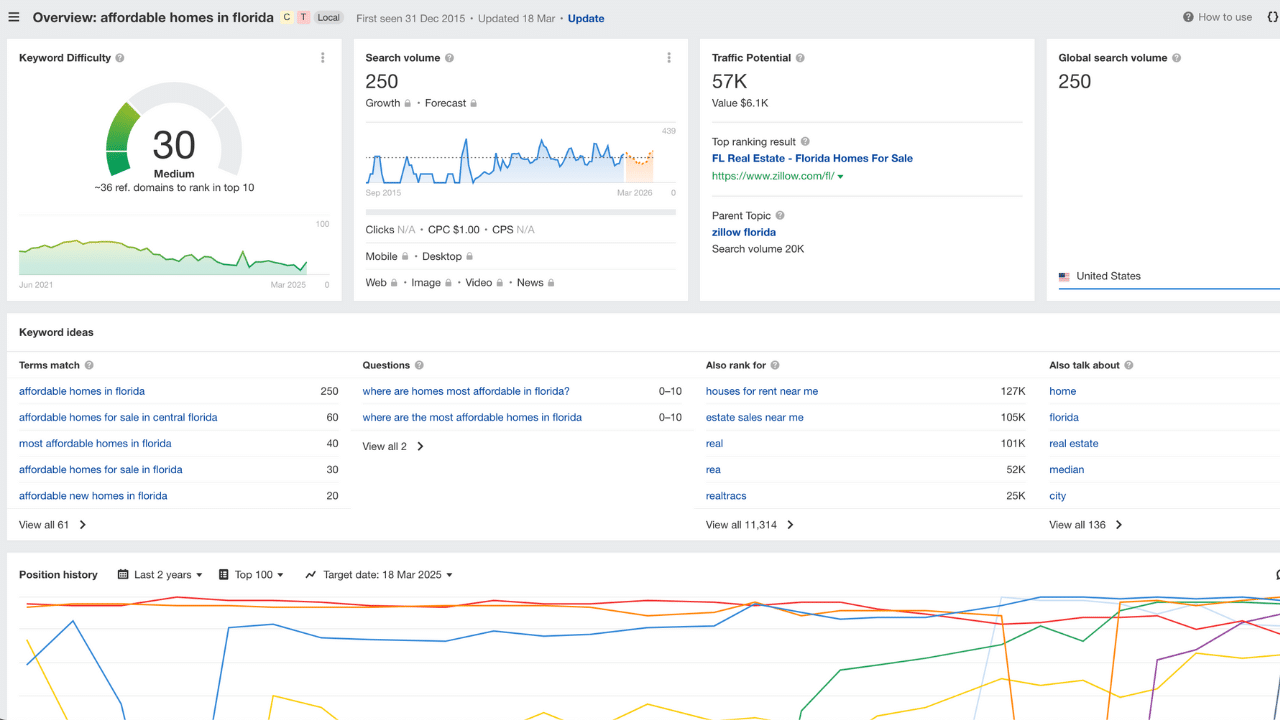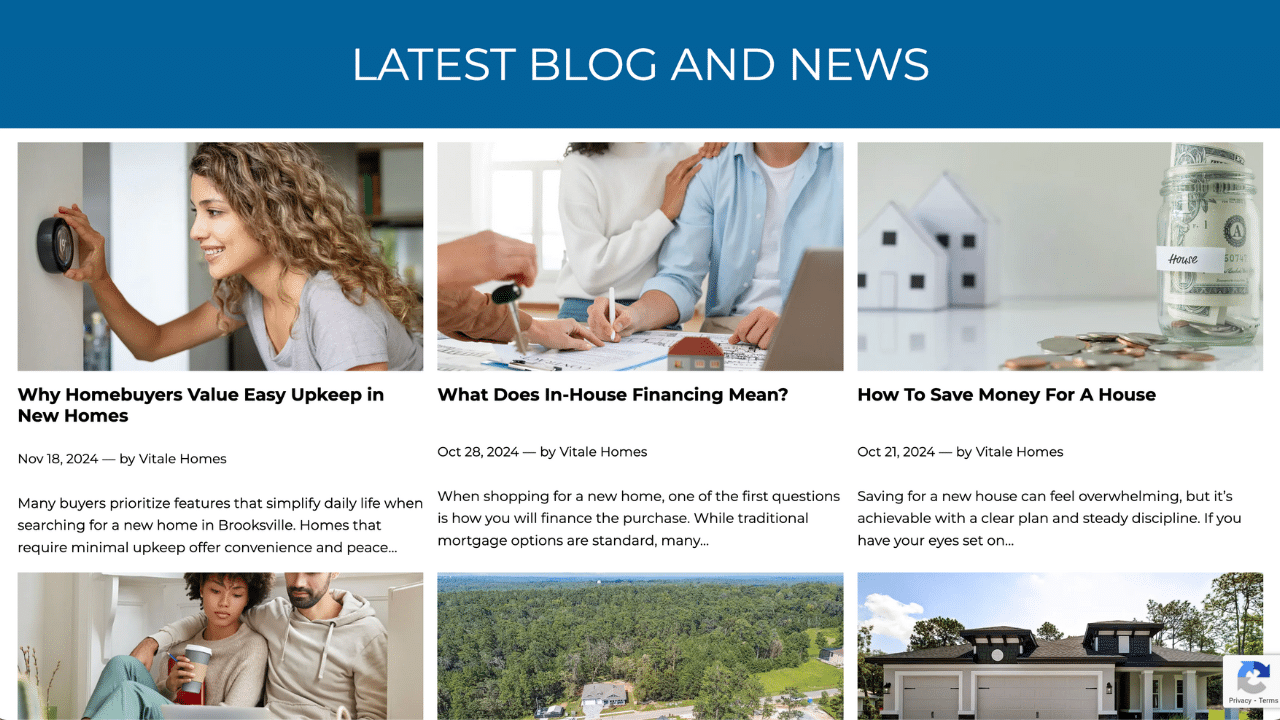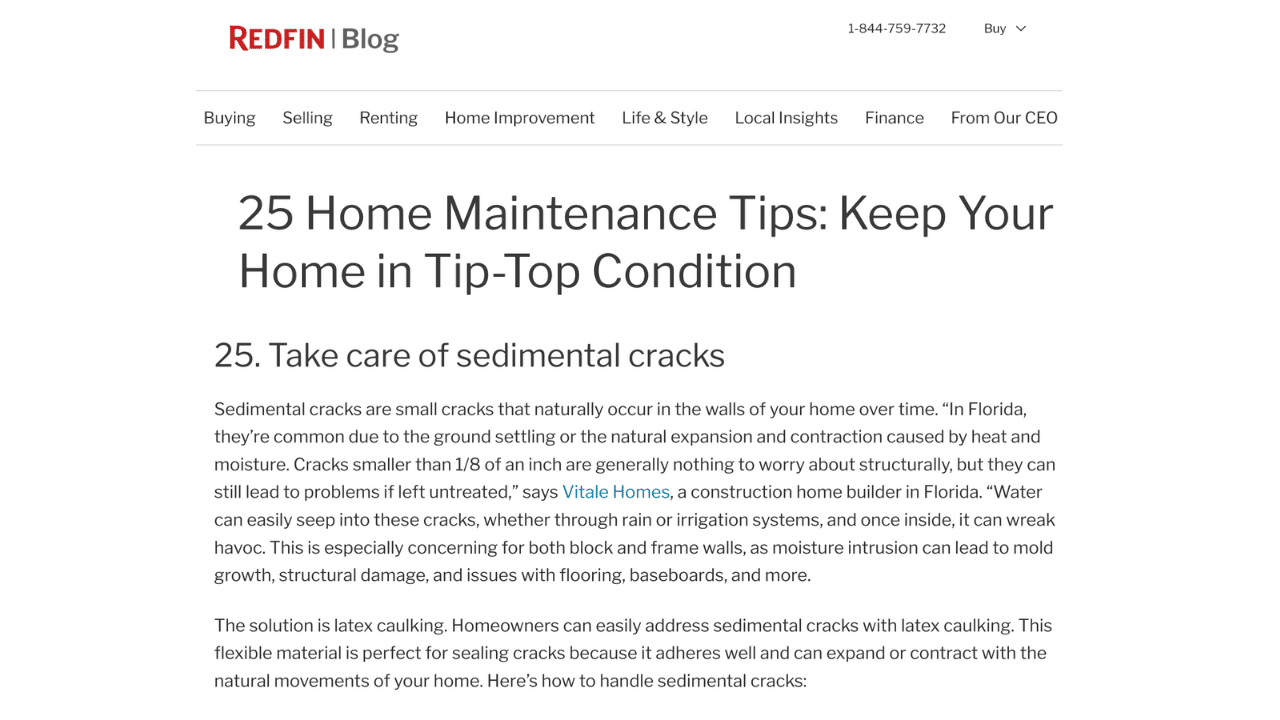How Do I Get My Real Estate Blog To Rank?
Understanding SEO for Real Estate Blogs
Search engine optimization (SEO) is a crucial factor in determining whether your real estate blog gains visibility in search results. With buyers and sellers frequently turning to Google for guidance on the housing market, mortgage rates, and home-buying processes, strong SEO practices can help your content reach the right audience. By implementing effective SEO strategies, you can increase organic traffic and establish authority in the real estate space.
What is SEO and Why It Matters for Real Estate and Real Estate Content
SEO refers to the practice of optimizing your content to rank higher in search engines like Google. In the real estate industry, ranking well means more potential buyers and sellers discovering your content, which can lead to increased leads and conversions. A well-optimized blog positions you as a trusted expert while improving visibility for relevant real estate search queries.
Ready to Boost Your Blog’s Rank? Get in Touch!
Blog Contact Form
"*" indicates required fields
Key Ranking Factors in the Real Estate and Mortgage Industry
Google’s algorithm considers multiple factors when ranking real estate blogs. These include high-quality content, relevant keywords, mobile-friendliness, and site speed. Backlinks from authoritative sources like mortgage lenders or home inspectors also improve rankings. Additionally, Google’s E-E-A-T (Experience, Expertise, Authoritativeness, and Trustworthiness) principles emphasize the importance of credible and well-researched real estate content.
Keyword Research for Real Estate Blogs
Setting attainable keyword goals is foundational to a successful real estate blog. Buyers, sellers, and investors use search engines to find answers, and incorporating high-performing keywords into your content improves its chances of ranking.
Finding High-Volume, Low-Competition Keywords in the Real Estate Niche
Identifying keywords with high search volume but low competition can give your blog an advantage. Tools like Google Keyword Planner, Ahrefs, and SEMrush help analyze keyword difficulty and search trends. Phrases such as “best cities for first-time homebuyers” or “how to get a mortgage with low credit” often present opportunities to rank.
Long-Tail Keywords for First-Time Buyers, Mortgages, and Market Trends
Long-tail keywords are phrases that are more specific and contain three or more words are essential for real estate blogs. Examples include “affordable homes in Florida for first-time buyers” or “mortgage interest rates for 2024.” These keywords capture a targeted audience actively searching for relevant information.

Tools to Use for Effective Real Estate Keyword Research
Choosing the right keywords for your real estate blog requires data-driven insights. Several powerful SEO tools help identify high-ranking opportunities:
- Google Keyword Planner: A free tool that reveals search volume, competition levels, and keyword trends specific to real estate.
- Ahrefs: Provides in-depth keyword analysis, competitor research, and backlink tracking to refine your SEO strategy.
- SEMrush: Offers competitive keyword research, site audits, and content gap analysis to uncover new ranking opportunities.
By leveraging these tools, you can identify high-performing real estate keywords that align with buyer and seller search behavior, improving your blog’s chances of ranking higher in search results.
On-Page Optimization Techniques
Optimizing your real estate blog’s on-page elements ensures search engines understand your content while improving user experience. From keyword placement to structured formatting, applying these techniques can significantly boost your rankings.
Optimizing Titles, Headings, and Meta Descriptions for Real Estate Content
Crafting compelling and keyword-rich titles, headings, and meta descriptions is vital:
- Titles: Should be concise, include primary keywords, and entice users to click.
Headings (H1, H2, H3): Organize content hierarchically, making it easier for readers and search engines to navigate. - Meta Descriptions: Provide a brief summary of the content, incorporating relevant keywords to improve click-through rates.
Internal Linking for Establishing Topic Authority in Real Estate
Internal links connect related content within your website:
- Benefits: They help distribute page authority, improve user navigation, and signal to search engines the structure and relevance of your content.
- Strategy: Link to related articles, property listings, or market reports to keep users engaged and enhance SEO.
Image SEO: ALT Text for Property Listings, Market Trends, and Infographics
Images play a significant role in real estate content:
- ALT Text: Descriptive text that helps search engines understand the image content. For property listings, include details like "3-bedroom townhouse in [Neighborhood]".
File Names: Use keyword-rich file names, such as "downtown-[City]-condo.jpg".
Captions: Provide context to images, enhancing user experience and SEO
Content Creation Tips for Higher Ranking
Creating engaging and informative content is at the heart of SEO success
Writing Engaging, Informative Content with Real Estate Market Insights
To captivate your audience:
- Stay Updated: Regularly provide current market trends, property values, and mortgage rates.
- Use Data: Incorporate statistics and reports to back your insights, enhancing credibility.
- Visual Aids: Utilize charts, infographics, and images to make complex information more digestible.
Address Audience Needs: Create content that answers common questions, such as "How to get a mortgage with low credit" or "Best neighborhoods for families in [City]

Using Visual Content to Boost Engagement
Visual content like interactive maps, infographics, and video tours are all different forms of content that can make real estate blogs more engaging while improving SEO. Buyers and sellers often prefer visuals to understand market trends and explore properties. An interactive map showcasing neighborhood insights or an infographic breaking down mortgage tips can capture attention. Video tours also help keep visitors on the page longer, which can boost rankings.
Creating Guides for First-Time Buyers and Homeowners
Guides that address common real estate questions can attract organic traffic and establish authority. First-time buyer guides covering mortgage options, budgeting, and closing steps are always in demand.Mortgage advice can help buyers navigate the process, offering tips on improving credit scores or securing the best loan. Homeownership guides that offer maintenance advice and strategies for increasing property value can also draw long-term interest.
Off-Page SEO and Link Building Strategies
Building authority through off-page SEO is essential for ranking higher. Guest blogging on real estate and mortgage sites can provide valuable backlinks, while networking with lenders and home inspectors creates opportunities for content collaboration. Listing your blog on platforms like Zillow and Realtor.com helps improve local search visibility. Promoting content on social media further expands reach and increases engagement.
Guest Blogging on Real Estate and Mortgage Websites
Contributing guest posts to established real estate and mortgage blogs helps build credibility and earn high-quality backlinks. Focus on providing value-packed insights that showcase your expertise while linking back to relevant content on your own blog.
Partnering with Real Estate Agents, Lenders, and Home Inspectors for Backlinks
Collaborate with local professionals to co-create content, such as market updates or neighborhood guides. These partnerships often lead to natural backlink opportunities and help you tap into a trusted network within the real estate ecosystem.
Leveraging Social Media to Share Market Updates and Engage with Buyers
Use platforms like Instagram, Facebook, and LinkedIn to share blog posts, infographics, and video tours. Engaging with your audience through comments and shares builds trust, drives traffic, and strengthens your blog’s online presence.

Wrapping It Up: Key Takeaways for Boosting Your Real Estate Blog’s Ranking
A well-optimized real estate blog combines smart keyword targeting, on-page SEO, and strategic link building. By creating useful, engaging content and amplifying it through partnerships and social media, you’ll attract more readers and more leads. Stay consistent, and over time, your blog can become a trusted resource in your market.
